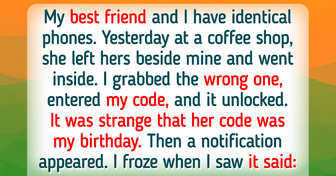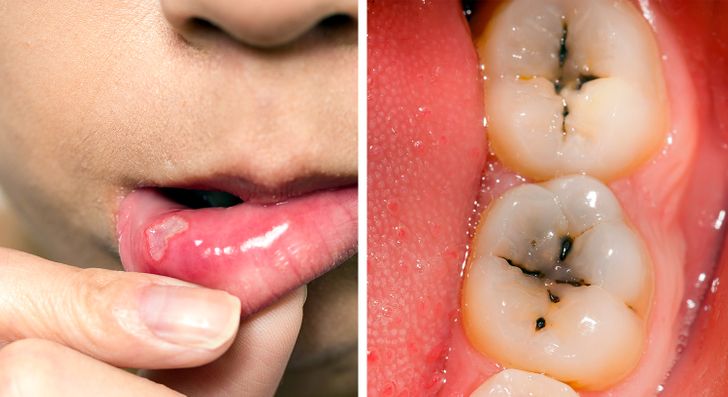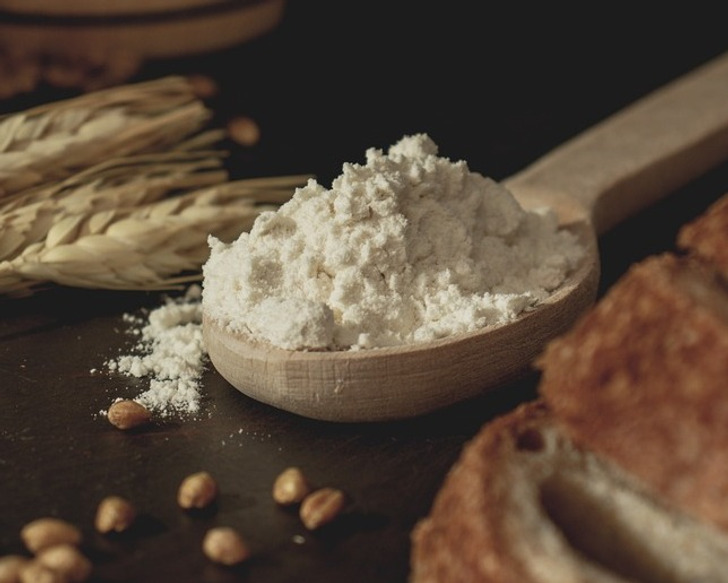I have suffered from gluten intolerance for years...Bloating that just wouldn't go away, i looked like, i was pregnant and The worst symptoms for me were not being able to think properly, due to fogginess in my brain, constantly tired and just not wanting to do anything but sleep/ rest,... and my belly was so bloated that I looked pregnant!!!..
I even couldn't finish university/ college because I just couldnt cope with it and now I know why!! I was always very grumpy, anxious and depressed. You don't need to vomit constantly as some people say. The symptoms people don't see can be much worse, but they are difficult to demonstrate, which may lead to people to think you are just being lazy...
Luckily, i came across this diet guide : http://bit.ly/2C52Boy to discover the truth about the foods in your kitchen and grocery store...which helped immensely..having removed the gluten, all the symptoms just went away :-) But I still needed to be careful. Sometimes I accidentally eat something with gluten in it and then the symptoms come back straight away!!! ... All those symptoms are gone for now, I would never go back to those wheat or gluten again ,I eat more vegetables and grass fed meat and quinoa , I feel much better..
9 Signs You’re Gluten Sensitive, and This Is Important to Know
Gluten is called a silent killer because it can cause chronic damage throughout the body. Sometimes the patient isn’t even aware of the consequences of gluten consumption. So, it’s better to check if your body has a gluten intolerance.
1. Problems with the gastrointestinal tract
Symptoms are mainly associated with the intestines: nausea, bloating, diarrhea, abdominal pain, and even constipation. People often associate these symptoms with other diseases. And the patients are mistakenly diagnosed with irritable bowel syndrome (IBS). Studies confirm that 10-15% of the world population suffers from IBS. But this diagnosis can lead to people with gluten sensitivity who don’t receive proper treatment so the symptoms don’t disappear.
2. Unexplained weight changes
Gluten intolerance can lead to both weight loss and to weight gain for no apparent reason. This happens due to inflammatory processes at the cellular level and metabolic disorders. A sudden change in weight may accompany other unpleasant diseases. But it can be related to gluten intolerance if it’s accompanied by other symptoms of malabsorption.
3. Hormonal Imbalance
There is a direct relationship between gluten intolerance and hormonal disorders which can occur as an irregular menstrual cycle, sudden weight fluctuations, PMS, and sleep disorders. Hormonal failures caused by gluten intolerance can be amplified many times during puberty, pregnancy, and menopause. Keep in mind that these symptoms are mainly recognized among women.
4. Problems with the central nervous system
Gluten increases inflammation and permeability of the intestine. As a result, the symptoms of gluten sensitivity can include problems with concentration, depression, anxiety, insomnia, and fatigue. Some people with gluten intolerance experience irritability and feelings that they easily lose their train of thought and have poor concentration.
According to information gathered from a study, people with gluten intolerance are more prone to migraines than other people. The causes of headaches can be very different. A person who is allergic to gluten can experience a headache 30-60 minutes after eating.
5. Skin and nails problems
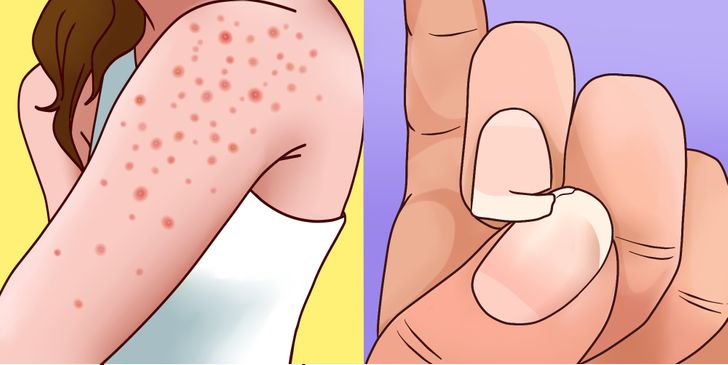
Hair keratosis and herpetiform dermatitis are 2 skin conditions directly related to gluten intolerance. The symptoms include itchiness and rashes that can appear on your hands, torso, face, buttocks, elbows, and hairline. Another symptom is weakened and brittle nails. Other skin irritations like mimic eczema can signal gluten-induced blockage.
6. ADHD
Another disorder that may be associated with gluten intolerance is attention deficit hyperactivity disorder. ADHD can manifest in both children and adults. People with this disorder have a short attention span and problems with self-control. A gluten-free diet can help reduce the symptoms of ADHD.
7. Poor condition of the teeth
In case of gluten intolerance, absorption of the necessary elements and minerals in the intestine is impaired. This also applies to calcium. The result can be problems with the teeth and oral cavity: hypersensitivity of the enamel, tooth decay, cavities, and ulcers of the mucous cavity. If you take good care of your teeth, but still notice some issues, the reason may be caused by your gluten consumption.
8. Iron deficiency anemia
Very often, Celiac disease is diagnosed because of iron deficiency anemia. Its symptoms include reduced blood volume, fatigue, shortness of breath, headaches, pallor of the skin, mucous membranes, and even arthritis. Iron is poorly digestible since, with gluten intolerance, there’s an impairment of iron absorption in the intestine.
9. Autoimmune diseases
Many people with autoimmune diseases have a history of gluten intolerance. Celiac disease is an autoimmune disease in which the immune system attacks its own intestine cells after gluten enters it. The problem is aggravated by the fact that this autoimmune disease increases the risk of developing other autoimmune diseases, such as autoimmune thyroiditis, autoimmune liver disease, Crohn’s disease, diabetes, vitiligo, rheumatoid arthritis, and multiple sclerosis.
How to treat gluten sensitivity?
1. Get tested. Your doctor will take a blood sample and check it for antibodies that are usually present in the blood of people with Celiac disease. Before the examination, you need to include gluten in your diet as this will help to avoid inaccurate results.
2. Eliminate gluten from your diet. It’s contained in:
- Wheat;
- Rye;
- Bulgur;
- Flour;
- Semolina;
- And in a number of other foods.
Always check the composition of the product. Give preference to products which contain the label “gluten-free.”
Comments
And that's how you create hysteria...
I couldn't finish the college, i am constantly bloated, all i want is to sleep and i feel tired after 12h at work...i'm always grumpy as i'm tired, also anxious and sometimes i feel depressed too, it's like describing 90% of world population.
Tell me more...you're not stupid, you care about people, you have also lost someone that you loved, one of your family member name starts with M or S, you don't like spiders...would you like to continue to describe you as the exception of the world?
Even if you are gluten intolerence, doesn't mean that if someone has some of your symptoms is gluten intolerant, you haven't said a word about going to a doctor, but hey...removing wheat will treat you off depression.
Removing wheat/gluten will NOT treat depression, that is complete rubbish. Getting to the root cause of whatever is making you feel depressed which will be related to your everyday life, things happening around you, your job, friends/family problems, relationships, money problems/debt, debilitating illnesses, chronic insomnia etc.
CBT, Counselling services, Talking therapies etc) & in some cases prescribed medication will help towards recovering from depression NOT removing wheat!
My 14 year old daughter has most all this going on.
I think am experiencing some of the signs like constant headaches and having insomnia regularly
with sore throat,solution please
I have a problem with Gluten I think so mouth alcer it's eretate me so much n pain so plz help me how to reduce it
I have a problem of teeth related I'll properly take care but it enhance day by day.as well as skin allergies
What should we do,I haven't understood English proper but some what I have understood that what we have to take gluten or not gluten free what will happen my age 52 if we are taking gluten free products what will happen and if we will take gluten and what will be the result
What is the medicine for gluten some problem is there every time not having proper food mouth ulcer is also there teeth paining
I hear, and you can "Google," it, if you put a little bit of Peroxide in some water and swish it will help but try just a little first because some people I know like to do it, kills bacteria but to me it stung too much. Maybe just a antiseptic mouth wash a few times daily. - You can also ask a pharmacist as they are very knowledgeable and free advice. Otherwise, ask your doctor or dentist.
Yar.... I think I have skin and nail problems. So, how can I treat this. Is it because of gluten?
My wife has the same problems. I didnt know the facts behind it but I dont let her eat bread and other related food. honestly my wife has all the above mentioned problems. I found a near substitute and its working.. rice,green gram, few variations of lentils (add any kind of pea if need) , mixed together and grind to get flour and make pancake type ( "thosa" some people call it) its healthy and delicious.
I have struggled with knowing what exactly my problem with wheat/gluten is called. If I eat granary bread (bran) then OMG i am in so much pain from trapped wind, gripe pains & watery stools & basically need an ambulance the pain is that excruciating. I also feel sick from the pain & it usually lasts about 4-6hrs & completely wipes out all my energy for 2 days after the pain has gone.
I can eat plain wheat flour (white bread, crisps, & pasta with semolina in withoutany problems.
I'm unsure if I can eat brown/wholegrain bread as I'm too terrified to find out. Previously after an attack (when I eat a granary bread sandwich before I knew what caused me this unbearable pain) I have had 2 blood tests taken (both within an hour to 4hrs after eating) & they both came back negative for coeliac (the GP told me that I have to eat what causes you the problem everyday for 6 weeks to be able to get a positive result & get a coeliac diagnosis here in the UK) but there is no way on earth I could eat granary bread/ bran everyday for 6weeks!! It's just not possible & honestly would probably finish me off.
Even if someone offered me a million pounds to eat half of a granary bread sandwich i would tell them to shove it- that is how bad the pain/gripes are for me.
My mum isn't able to eat anything with gluten/ wheat in at all now except manage a packet of crisps (this does give her wind) as she's gotten older & even said that she used to be able to eat pain wheat flour when she was younger but this didn't last the older she got.
My son is now also in the same position as myself & gets the exact same symptoms if he eats bran/granary bread & sadly got it at the very young age of only 7 years old (he is now 13). He also was given a blood test & got the same negative result.
If anyone can advise me on what I have mentioned, so I'm able to put a label to what my son & I do have exactly that would be very helpful as I don't know if we are classed as wheat/gluten intolerant/coeliac etc.
Much appreciated
Related Reads
15 True Stories That Could Be on Netflix’s Must-Watch List

15+ People Whose Age Is a Mystery

13 People Who Experienced Real-Life Plot Twists

10+ True Stories That Are More Disturbing Than Any Eerie Fiction
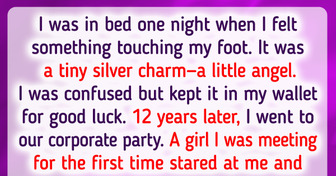
10 Unconventional Job Interview Questions That Left Candidates in Shock

10+ Once Popular Things That Have Become Totally Outdated

13 Thanksgiving Dramas That Were Juicier Than the Turkey
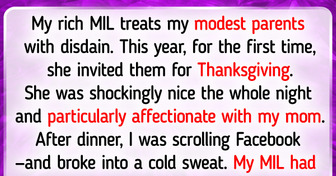
I Took Away a Waitress’s Tip — She Needed to Learn a Lesson

12 People Who Had Been Living in a Carefully Crafted Illusion
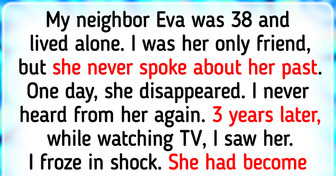
My Ex’s Wife Made My Teen Babysit Their Baby All Night—So I Took Drastic Action

20+ People Whose Ideas Are Way Beyond Insane
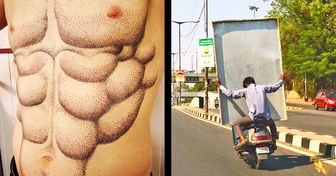
13 People Who Had Been Living in a Web of Lies and Deceit
